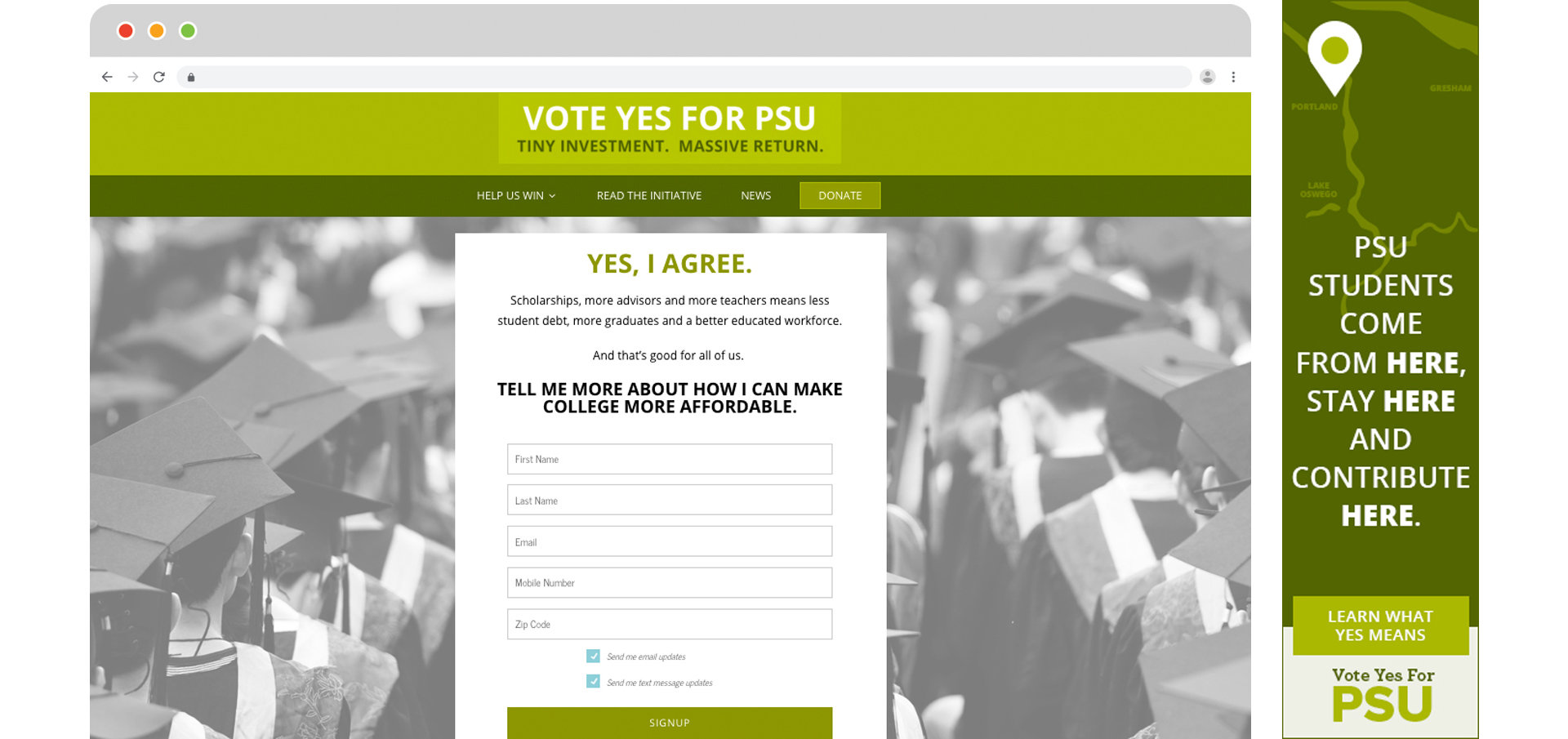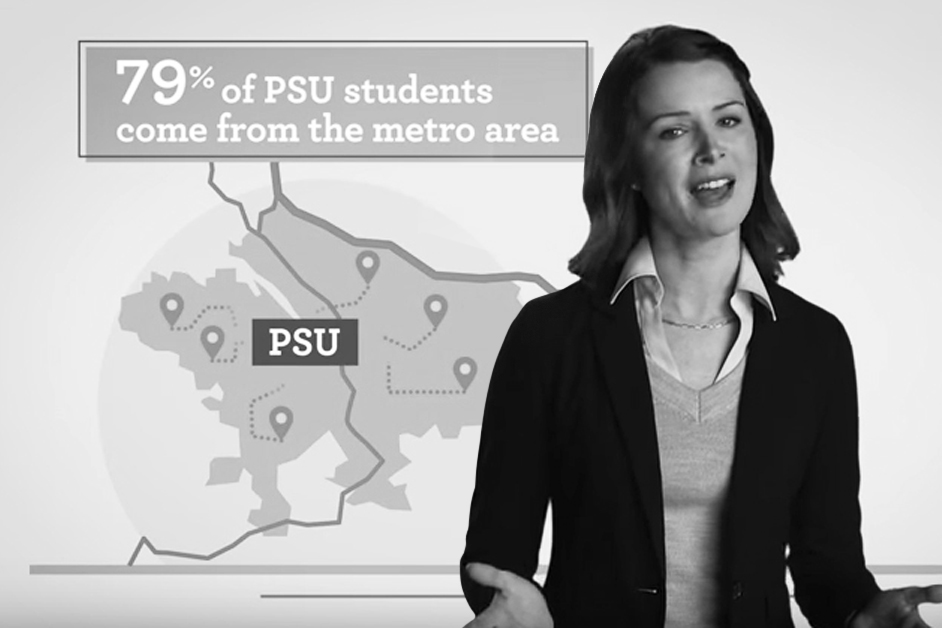The Challenge
Decreased state funding for higher education in Oregon. Deteriorating student to advisor ratios. And high student drop-out rates due to costly tuition.
Our Approach
As state funding resources dwindled, Oregon’s public universities and colleges were forced to find other sources of revenue, leading to significant increases in tuition and fees. Portland State University’s students were the hardest hit, and they needed a new strategy. We helped create a campaign advocating for a payroll tax as a strategy to create public pressure for a solution.

The Results
An agreement with Portland State University and the local business community to raise substantial funding for the university — avoiding a costly ballot measure campaign.
We created leverage for higher education funding.
Over the last decade-plus, Oregon has decreased the state’s share of funding for higher education. Portland State University (PSU) has felt a disproportionate negative impact from this shift, with the state share of funding falling from 80% of the university’s expenses to just 20%. Because PSU has fewer alternative resources than the other major state universities, this burden has largely fallen onto the shoulders of students. One in three PSU students drops out due to the cost of tuition, and there are extremely high student to advisor ratios (547:1). A need to increase funding to better support PSU’s students and solve some major problems at the university motivated community members to form a campaign in the spring of 2016.
The Yes for PSU campaign needed to raise awareness and support among influencers and the general public for a potential ballot measure campaign aimed at establishing a regional payroll tax to fund scholarships, professors, and other student supports.
Our media plan had two objectives: to raise awareness and generate leads. While PSU is a well-known and well-regarded institution in the Portland region, people had a very limited understanding of both the impact the university has on the community and the challenges it faces in carrying out its mission. We developed a variety of materials, both video and static, that delivered that information using a multi-layered, micro-targeted strategy. We saturated an influencer audience comprised of funders, journalists, business leaders, and other members of Portland’s “chattering class” to both deliver the basic messaging and develop visible metrics of awareness and support. To generate high-quality email and phone leads for the campaign, we built a website with optimized landing pages and executed a multi-channel conversion ad campaign on LinkedIn, Facebook, Twitter, and across the web. We targeted alumni, people connected with PSU, and lookalike audiences. We A/B tested ad images, text, and landing page combinations to boost conversion rates and drive down the cost per lead.
While PSU is widely appreciated as an institution, this proposal for a small payroll tax in the Portland metropolitan area was quite controversial and resisted by the business community and editorial boards. One of the imperatives of the effort was to demonstrate early traction. We recruited 5,503 Facebook fans and converted 1,602 of these supporters into email/phone volunteer leads. Our influencer ads proved effective across multiple platforms. On LinkedIn Sponsored Update ads, we saw a click-through rate 4 times higher than the industry average. The support and awareness built by our efforts helped PSU negotiate an agreement with the local business community to raise substantial funding for the university, which allowed them to avoid a costly ballot measure — a win-win result for all concerned.
